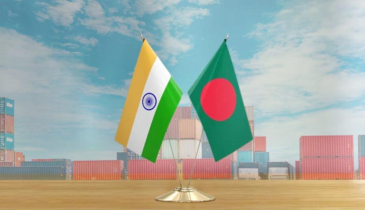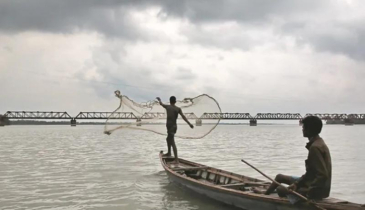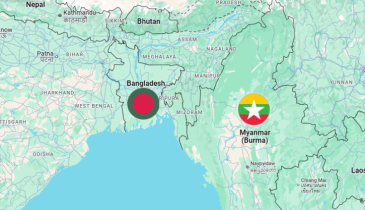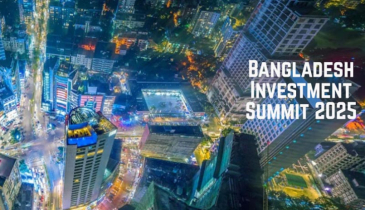Rohingya crisis a demographic time bomb for Bangladesh
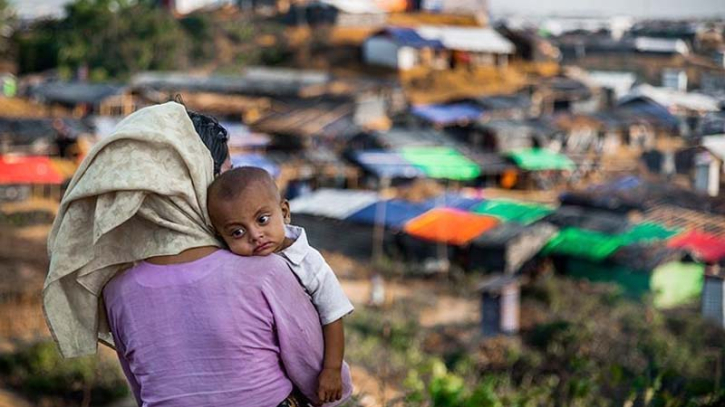
The Rohingya refugee crisis, one of the most protracted humanitarian disasters of our time, has reached a tipping point. With over 1 million Rohingya refugees currently living in Bangladesh, the nation’s ability to cope with the crisis is collapsing under the weight of new arrivals, a burgeoning birth rate in the refugee camps, and dwindling international support.
The crisis has now evolved into a demographic catastrophe, with children making up over half the refugee population, growing up in abysmal conditions that strip them of opportunities for education, healthcare, or a sense of security. The situation is not only unsustainable for Bangladesh but also dangerous for the region, as a lost generation of Rohingya youth emerges, vulnerable to exploitation, radicalization, and despair.
Bangladesh’s response to the influx of Rohingya refugees fleeing persecution in Myanmar has been marked by remarkable generosity. Since 2017, when the Myanmar military launched a brutal crackdown against the Rohingya people, Bangladesh opened its borders to the refugees, despite its limited resources. The small, densely populated country, however, is now straining under the burden of hosting such a large population. The camps in Cox’s Bazar, the world’s largest refugee settlement, are overcrowded, under-resourced, and dangerous. Conditions are dire, with refugees living in makeshift shelters that offer little protection against disease, malnutrition, and violence.
Healthcare and sanitation systems are buckling under the pressure. With limited access to clean water and adequate medical facilities, disease outbreaks are common, exacerbated by the cramped living conditions. The availability of basic services like food, healthcare, and education is stretched thin, and the strain on local infrastructure is leading to growing resentment among the host population. The situation is reaching a boiling point, with Bangladesh increasingly vocal about its inability to manage the crisis alone.
One of the most alarming aspects of the Rohingya crisis is its demographic shift. More than half of the refugee population are children, many of whom were born in the camps and have never known life outside their confines. These children are growing up in an environment that not only stunts their physical and psychological development but also deprives them of the tools necessary for a future. The camps are devoid of proper educational facilities, leaving young Rohingya without access to even the most basic education.
According to UNICEF, nearly 83 percent of Rohingya adolescents and youth in the camps lack access to education or vocational training. The few educational programs that do exist are informal, and the curriculum is often substandard, failing to equip children with the skills they need to rebuild their lives. As a result, this generation is growing up illiterate and unskilled, with no clear path forward. The long-term consequences of this demographic trend are devastating. A generation of Rohingya youth is being lost to poverty, displacement, and hopelessness, creating a cycle of despair that threatens to destabilize the region further.
The lack of education and employment opportunities in the camps has left young Rohingya particularly vulnerable to exploitation. Reports of human trafficking, forced labor, and gang violence are on the rise in the camps, as criminal networks prey on the desperation of displaced families. More worrying, however, is the increasing vulnerability of these children to recruitment by militant groups operating in the region. Alienated, disenfranchised, and trapped in an environment of poverty and violence, young Rohingya are easy targets for radicalization.
This demographic time bomb poses a significant security threat not only to Bangladesh but to the region as a whole. Extremist groups see these disenfranchised youth as fertile ground for recruitment, and without intervention, the camps could become breeding grounds for terrorism. This reality makes it imperative for the international community to step up its support for Bangladesh and address the root causes of the crisis in Myanmar.
Bangladesh has repeatedly called on the international community for greater support, both in terms of financial assistance and political pressure on Myanmar. However, these calls have largely gone unheeded. International donors, suffering from “donor fatigue,” have been slow to release funds, and many countries, distracted by domestic concerns or geopolitical considerations, have failed to provide the necessary support.
Humanitarian organizations working in the camps are also grappling with funding shortfalls, further compounding the crisis. The World Food Programme (WFP) and other aid agencies have had to reduce food rations in the camps due to a lack of funding, leaving many families without enough to eat. The global community’s failure to act decisively is prolonging the suffering of the Rohingya people and placing an unsustainable burden on Bangladesh.
At the heart of the Rohingya crisis lies the issue of repatriation. Bangladesh has made it clear that it cannot continue to host such a large refugee population indefinitely. However, efforts to repatriate the Rohingya to Myanmar have stalled due to the Myanmar military’s refusal to create conditions conducive to their safe return. Myanmar’s junta, which has been accused of committing genocide against the Rohingya, continues to act with impunity, and legal proceedings at the International Court of Justice and the International Criminal Court are moving at a painfully slow pace.
The lack of international pressure on Myanmar to end its campaign of ethnic cleansing has emboldened the military regime, which continues to carry out attacks against ethnic minorities. Meanwhile, the conflict between the Myanmar military and the Arakan Army in Rakhine State has flared up again, forcing thousands more Rohingya to flee across the border into Bangladesh. This new influx of refugees, many of whom are traumatized and in desperate need of assistance, has only added to the strain on Bangladesh’s already overwhelmed resources.
The current trajectory of the Rohingya crisis is unsustainable, and without immediate and coordinated international action, the situation will continue to spiral out of control. To address the demographic and humanitarian challenges posed by the growing refugee population, the global community must adopt a multipronged approach:
The international community must step up its financial and logistical support for Bangladesh, not only through humanitarian aid but also by providing long-term development assistance. This will help integrate refugees into the local economy and alleviate some of the pressure on Bangladesh’s resources.
Urgent action is needed to provide education and vocational training to Rohingya youth. Without these opportunities, the “lost generation” will continue to grow, fueling instability in the region.
The international community must apply sustained political pressure on Myanmar to end its campaign of ethnic cleansing and create the conditions for the safe return of the Rohingya. This includes targeted sanctions, diplomatic isolation, and continued legal action at international courts.
Bangladesh cannot manage this crisis alone. Regional actors, including India and ASEAN, must be engaged in finding a collective solution that addresses both the root causes of the conflict in Myanmar and the immediate needs of the refugees.
The Rohingya crisis is not just a humanitarian disaster but a demographic time bomb that threatens the stability of the region. Bangladesh, despite its best efforts, cannot continue to shoulder this burden alone. The international community must act now, before the situation spirals further into chaos, and another generation of Rohingya is condemned to a future without hope or opportunity.
.png)


